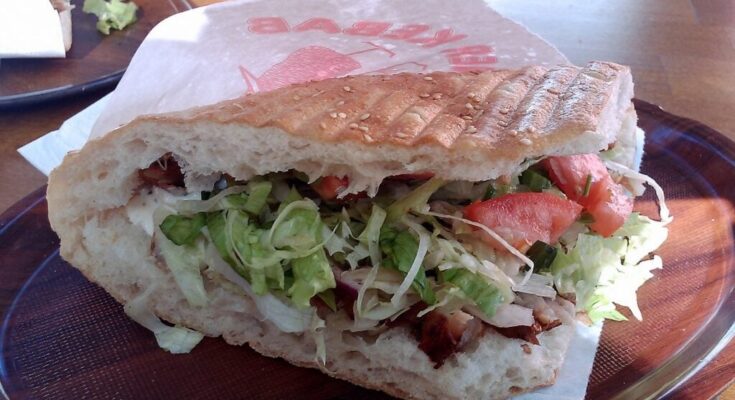Germany and Turkey have engaged in a food fight over the doner kebab, as Ankara attempts to have the popular street food given the protected EU status of “guaranteed traditional speciality.”
The request was made by the Istanbul-based International Doner Federation (Udofed) which seeks to strictly define who can use the term “doner,” arguing that the dish is an integral part of Turkey’s “culinary heritage.” Furthermore, the dοner economy in Europe is estimated to be worth roughly €3.5 billion, the Udofed submission reads.
The Turkish request dictates what amount of ingredients to use, what kind of meat is allowed, and the spices to add. It also mandates that it be cooked on a rotisserie. This means that the doner label could only be used by makers of the food who conform to designated production methods and specifications for the meat within.
Only beef and lamb “horizontally sliced into cutlets with a thickness of 3-5 mm” could be sold as doner. Chicken cutlets could be thicker, while ground meat would be banned entirely. Specifications get more complicated, as the age of the animals is important, and the knife used in slicing the meet should also be of a specific type.
The doner war began in April, when Turkey applied to have the name “doner” registered as its “guaranteed traditional specialty” across Europe. Even though Turkey is not a member of the European Union, third countries may register products for protection in the bloc.
German doner makers oppose
German producers reacted by filing an opposition to the Turkish application to grant the doner kebab’s special status at the EU level similar to Spain’s jamon serrano or the Italian Neapolitan pizza.
Now, the two sides have a six-month period to resolve disagreements. If they fail to come to an agreement, the decision will ultimately be made by the European Commission.
According to Euronews, German Federal Ministry of Food and Agriculture filed an opposition to the Turkish application.
“The doner kebab is a part of Germany. Everyone here should be able to decide for themselves how to prepare it,” intervened the Turkish-origin Federal Minister of Agriculture Cem Özdemir and added that, when the Turkish request was presented in Germany, everyone was caught by surprise. The German ministry further warned that if Udofed’s request is accepted, “The economic consequences for the German culinary sector will be enormous.”
With German kebab sales totaling around $7.5 billion (€7 billion) a year, one realizes the impact of such a decision. An estimated one in three Germans has at least one doner a month, but it is becoming hard on people’s wallets.
Doner prices have doubled in Germany, up from around $4.50 (€4) just two years ago, while the cost has reached almost $11 (€10) in some cities. German Chancellor Olaf Scholz is under fire over the cost of a doner. The far-left party of Die Linke has called on the government to introduce a doner kebab price cap.
A cultural issue
There are 2.7 million naturalized Turkish people living in Germany, and they introduced the doner kebab to the country. In the 1960s, when the first wave of Turkish migrants arrived in Germany, the doner became an inexpensive fast food that gained popularity among Germans.
In fact, the German capital claims the doner kebab is a “Berlin invention” by a Kadir Nurman who was the first to put thin slices of meat on flatbread in 1972. Soon, the doner kebab was as popular as bratwurst.
The German doner is now served in many variations, such as vegetarian, meatloaf, and sausage forms. There is even a chocolate doner kebab served for dessert.
Turkey is trying to reclaim the popular fast food with its registration attempt through EU channels. However, Germany’s agriculture ministry, led by Cem Özdemir, a Green politician with Turkish roots, said in Politico that European regulations would constitute “an intervention in the German market with a tangible economic impact.”
“It’s an attack on Germany’s cultural identity,” said Berlin sociologist Eberhard Seidel in the daily Frankfurter Allgemeine Zeitung. Seidel has written a book on the history of the doner kebab.



